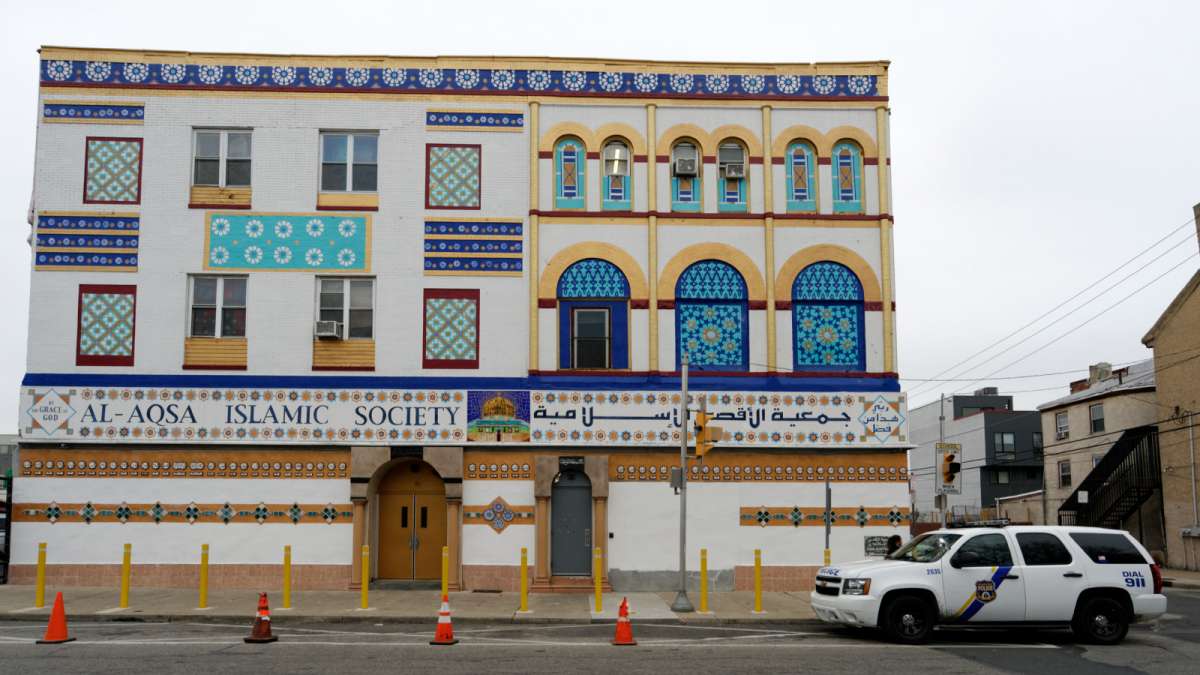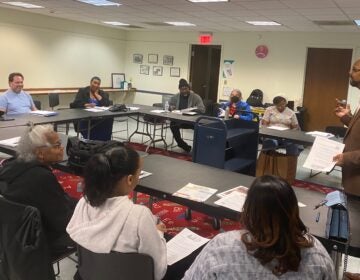No new leads in pig’s head incident at Philly mosque
Listen
Al-Aqsa Islamic Society on Germantown Avenue in North Philadelphia. (Bastiaan Slabbers/for NewsWorks)
After a pig’s head was thrown at a mosque in North Philadelphia, religious leaders and city officials condemned the act and vowed to find those responsible.
More than one month later, the police investigation has hit a road block.
Surveillance video at the Al-Aqsa Islamic Society mosque shows someone in a red pickup truck throwing the pig’s head out the window on the night of Dec. 7. However, investigtors have said the image is too blurry to read the truck’s license plate, even with video enhancement technology.
A spokeswoman for the Philadelphia Police Department said it has no suspects and a spokeswoman for the FBI, which is also working on the case, would only say the investigation is ongoing.
Marwan Kreidie, director of the Arab-American Development Corporation who has an office at the mosque, said the community would like to see the perpetrators brought to justice, but he has faith in the investigators.
“The case is still being investigated as a potential hate crime,” said Rue Landau, executive director of the city’s Commission on Human Relations. “Unfortunately, it’s a difficult case to investigate.”
In these cases, the commission acts as a liaison between victims and law enforcement, a job that often involves urging investigators to keep cases active and to communicate developments to the affected communities.
Landau said if those responsible for the incident are found — and the case is ultimately prosecuted as a hate crime — it could mean higher penalties for the perpetrators, and it could send a signal to those who would commit these acts in the future.
“When it rises to the level of a hate crime, this isn’t just a random criminal act,” she said. “This was a crime that was intended to harm a certain group of people or a certain place with institutional vandalism. That sends ripples throughout a community of fear and concern.”
For Al-Aqsa, the sense of fear did not last long.
“We just felt, again, a flashback from 9/11, but soon after… the outpouring of support was just overwhelming,” said Adab Ibrahim, the mosque’s community outreach coordinator. Her husband’s parents were among the founders of Al-Aqsa Islamic Society, a group of Palestinian-Americans looking for a place to worship in the 1970s. Today, the mosque has roughly 1,500 members, Ibrahim said.
Over the last month, the mosque has received cards and flowers from neighbors, as well as strangers from Tennessee and Texas to Australia. On Saturday, dozens of people helped paint a mural on the side of the mosque called “windows to peace.”
Ibrahim said finding those who committed the affront would help members heal, “but we’re also grateful that this has brought us closer as a community.”
WHYY is your source for fact-based, in-depth journalism and information. As a nonprofit organization, we rely on financial support from readers like you. Please give today.




